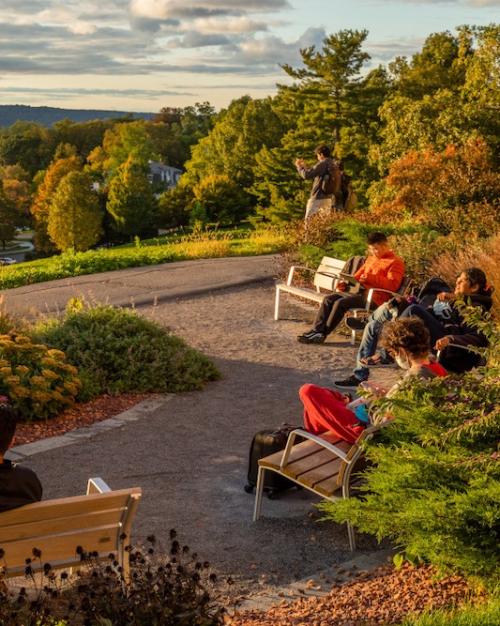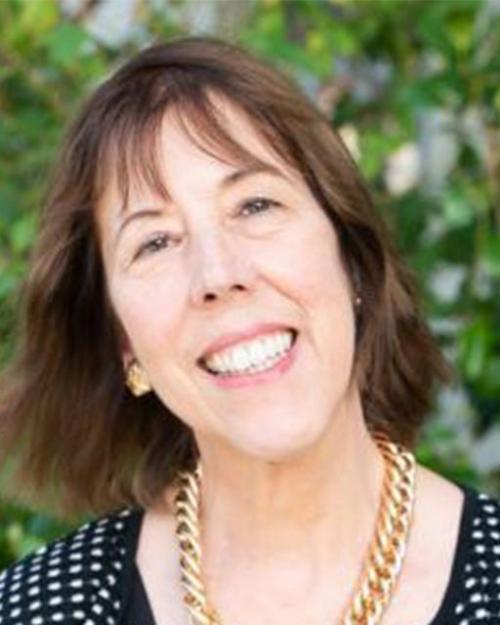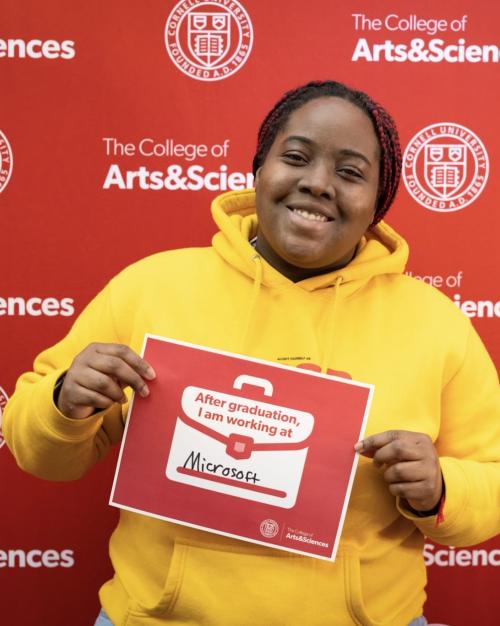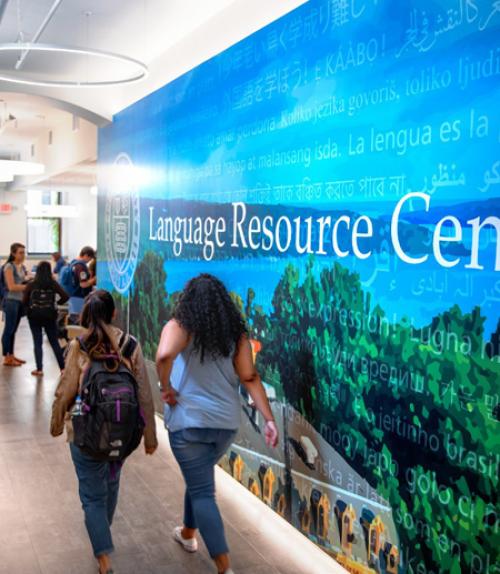After 25 years in Noyes Lodge, the Language Resource Center has a new mission and a new space on the ground floor of Stimson Hall. The center is celebrating with an open house Aug. 30 at the end of the International Fair in Uris Hall.
“We want to give students more opportunities to practice their languages outside of the classroom by offering events, a central location with spaces for students to meet and ways for students to interact more with native speakers,” said Dick Feldman, LRC director. “We want this to be not only a place to practice other languages, but also a place to have encounters with other cultures.”
At the open house from 1:30 to 4 p.m., participants are welcome to drop in to look around the new facility, Feldman said. The new space includes four video classrooms for distance learning, video and audio recording studios, a large learning and event space with computer workstations and chairs and couches designed to block out acoustics for individual and group work, and many new technology upgrades to enhance language learning. The space is tied together with a mural with international expressions from all of Cornell’s language teachers stretching from the west to the east end of the hall.
LRC’s mission includes a closer relationship than ever before with the language house on West Campus, which houses 72 students interested in an immersive living-learning experience, Feldman said.
One of his plans is to offer events featuring native speakers talking about topics related to their home country. “Students studying Chinese might wonder, ‘What would a native Chinese person think about this? What would it be like to grow up in China?,’” Feldman said. “This is the type of cultural information that language teachers are trying to share during class, but they don’t have much time for it.”
Cornell students can study 45 ancient and modern languages, some through traditional courses and others through the Shared Course Initiative, through which students can attend classes via live videoconferences. All language classes are offered through the College of Arts and Sciences.
Language students have access to noise-canceling headsets, online recordings and state-of-the-art equipment that offers the high-definition audio and video necessary to capture the subtleties of certain languages, said Dan Gaibel, LRC technology manager.
“Language students need accurate oral input to learn foreign languages, many of which have subtle but important phonetic differences from English. For example, some South Asian languages use aspiration, that little puff of air after some sounds, in complex ways that have significant meaning,” Gaibel said. “Language learning technology needs to support these fine distinctions with high-quality audio.”
The new VideoBooth allows students to record themselves and send those recordings to their professors or to themselves.
The center’s resources for teachers will also be expanded, with better equipment to create audio and video materials for their classes. In addition to web page tools designed for language web sites, the LRC offers Web Audio Lab, developed jointly by the LRC and Slava Paperno, senior lecturer of Russian, which provides students with an oral learning environment. The program supports students in intensive audio practice, letting them speak and compare their recordings to the model. Teachers can then send comments to students about their performance. Gaibel is also investigating ways to incorporate virtual reality and gaming into the LRC’s language-learning tools.
Derron Borders, residence hall director for the Language House, said the house will collaborate with the resource center to create conversation hours for languages currently spoken in the house (Arabic, French, German, Japanese and Spanish) and possibly other languages.
“I'm very excited about the opportunities the language learning community at Cornell will have, given the new beautiful spaces that they have available to them in the Language Resource Center,” Borders said.
This story also appeared in the Cornell Chronicle.




